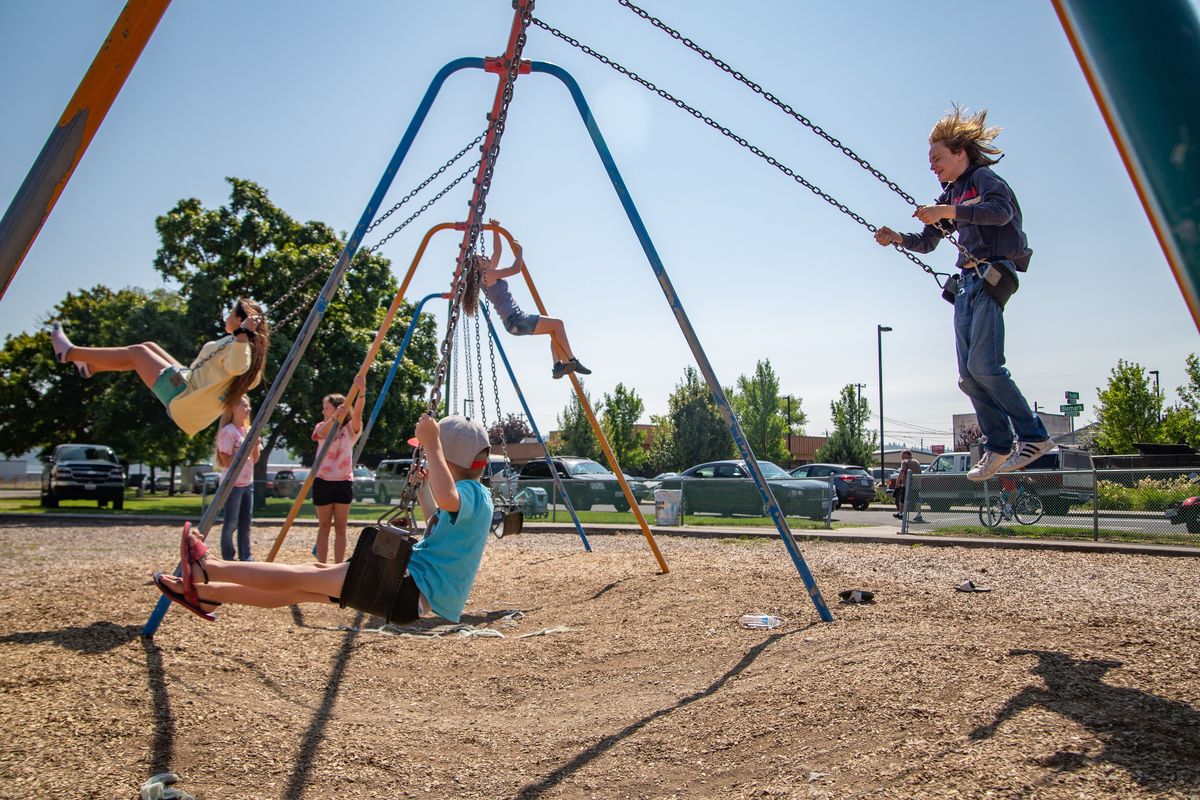Spokane City Council could place $225 million parks levy on ballot

Three new parks. More than 30 new playgrounds. Four new rangers to keep parks safe and 14 new maintenance workers to keep them clean.
Spokane could have all of that and more if voters in February approve a new property tax that would bring in an estimated $225 million over the next 20 years.
The City Council on Monday will decide whether to place a major parks investment proposal on the Feb. 13 special election ballot. If voters like the idea, the property tax will go into effect in 2025.
Spokane is known for its parks. Manito Park, with its vibrant gardens, is one of the city’s most recognizable landmarks. Numerous Spokane parks were planned in the early 1900s by the firm created by Frederick Law Olmsted, the most celebrated landscape architect in American history.
The city is known for investing in its parks, too. Spokane’s charter mandates that the city spend 8% of its general fund on parks, a commitment few governments make.
But Spokane’s dedication to funding parks has waned in recent years, according to city staff.
“There has been no substantial citywide investment in the City’s neighborhood parks since 1999 and neighborhood park conditions have deteriorated as a result,” staff wrote in a recent report to the City Council.
If Spokane is going to fix its dilapidated parks, and build new ones in areas experiencing rapid population growth, it will need to come up with millions of dollars.
Those millions probably can’t be found in the city’s standard budget, so the park board wants to pitch a massive parks investment plan to voters.
If voters approve the parks property tax, the city will gain three new parks.
One will be in the Shiloh Hills neighborhood, east of Nevada Street and north of Francis Avenue. Today, roughly 1,800 households in Shiloh Hills don’t have a park within walking distance.
“Meadowglen Park” will be in the North Indian Trail neighborhood, in northwestern Spokane. While that neighborhood is relatively affluent, city staff say it’s statistically the most “underparked” area of the city.
The southernmost part of Spokane would get “Qualchan Hills Park,” in the Latah Hangman neighborhood.
Numerous existing parks would receive major upgrades.
The parks department has singled out three that would receive particular attention. Minnehaha Park in northeast Spokane would be one; Grant and Harmon parks in the East Central neighborhood would be the others.
The $225 million property tax would also go toward a long list of citywide parks improvements. The money would pay for the following:
- 32 new playgrounds.
- A handful of artificial turf fields.
- Complete replacement of 50% of the city’s park restrooms.
- Four new rangers.
- 14 new maintenance workers.
- The acquisition and preservation of natural lands.
- New racquet sport courts and renovation of existing courts.
- A disc golf course.
- Splash pads.
- A pump track, a type of BMX and skate park.
- A few new trailheads.
The property tax increase would cost the owner of a $400,000 home about $120 a year.
Spokane City Councilman Jonathan Bingle said he’s a big fan of the parks proposal. He said he’s especially excited about the prospect of new park rangers.
Bingle, who has three young kids, said the city needs to improve park safety.
He said he feels uncomfortable when his wife takes their kids to Friendship Park by herself, in part because homeless people occasionally camp by the playground equipment.
Northeast Spokane would be a major winner if the $225 million parks tax passes, Bingle said. He noted that the South Hill has a disproportionate percentage of the city’s park land. This parks investment package would help even the gap in parks services between different parts of the city, he said.
February could be a difficult time to pass a new property tax, however. Voters this month rejected Spokane County’s request for a 0.2% public safety sales tax that would have raised $1.7 billion and paid for two new jails.
City Council President Lori Kinnear said she’s unsure if voters will be eager to tax themselves for parks improvements, given they shot down the $1.7 billion sales tax.
“People looked at that amount and said, ‘I don’t want to pay more taxes,’ ” Kinnear said. “That doesn’t bode well, in my opinion, for what’s going to happen in February.”
City Councilman Zack Zappone said he sees reason for optimism, however. He argued that voters rejected the 0.2% sales tax because it wasn’t clear how the money would be spent. The parks tax, he noted, was informed by community input and comes with a detailed spending plan.
The parks tax won’t appear on the February ballot by itself. Voters in Spokane will simultaneously consider school levy renewals, school bonds, and, in all likelihood, a library levy renewal.
Bob Anderson, president of Spokane’s park board, said appearing on a more crowded ballot could be an advantage. He said the park board specifically wanted the funding request on the February ballot because Spokane Public Schools and the city library have a track record of passing their bond and levy requests.
Anderson emphasized that if Spokane residents want major park improvements, they’re going to have to pay for them.
The money simply can’t be found in the city’s standard budget, he said.
“What’s planned here couldn’t be done without the levy,” Anderson said, “so hopefully, voters will see that.”